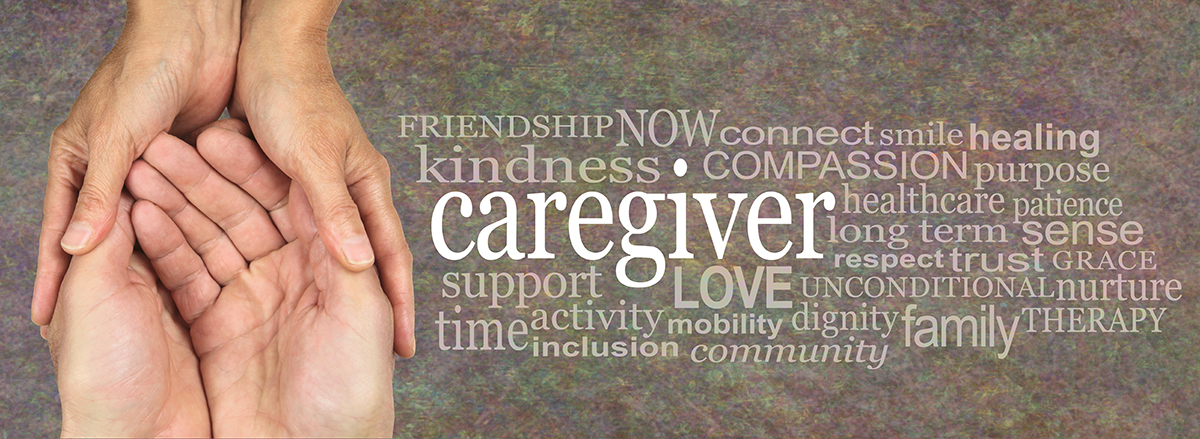 Many people associate “caregiving” with children or elderly, because that is what they are accustomed to seeing more regularly.
Many people associate “caregiving” with children or elderly, because that is what they are accustomed to seeing more regularly.
What many people do not know is that home care services are not limited to children and seniors – individuals of any age who live with a disability or chronic care needs can benefit as well! In addition to helping with typical activities of daily living, such as assistance with medication, transportation, and meal prep, caregivers can also provide social interaction, emotional support, and peace of mind for the family.
Caregiving is a rewarding career, and it attracts people with a passion for helping others. Ernie’s passion for his clients is obvious when you speak with him. Ernie also appreciates the home-life balance of his caregiving career. Ernie has a two-year-old daughter, and he and his wife are expecting a baby boy.
How long have you been working in this career field, and what attracted you to it?
This will be my fourth year working with HCBS. I’ve also done overnight and respite care (e.g., clients with feeding tubes, assistance getting into a wheelchair, etc.). The other part is in-home and community services and life-building skills to help them be more independent. I’ve always been attracted to this field.
A long time ago, my mother had a stroke. When that happened, it prompted me to want to help other people as well. I was a medical assistant for quite a while and was working out of urgent care facilities, but I found out about working with HCBS and started doing this.
It all started with one client, and I really enjoyed the work. I had something to offer the client, who appreciated having a male figure in his life. I would take him to parks, the mall, and little things in the community—like Longwood Gardens and stuff like that. I used to help my mom with wheelchair transfers, so I wasn’t afraid to help him.
Tell us about what you do.
I provide home and community-based services. I help clients with tasks like cleaning, doing laundry, and purchasing stuff at the grocery store. I also help them learn how to cook. I have one client who comes to my house to learn how to prepare meals, cook them, set the table, and clean up at the end. I’ve been working with a client to help him work with landlords and to help improve broken issues in the apartment. I also help clients learn various skillsets—like making a list for groceries, going to the store, showing them how to use the checkout.
Tell us about one of your favorite moments with a client.
One client was very timid about walking around a grocery store with a list to pick up different grocery items. After some experience and coaching, he was able to learn how to do it.
Is it hard to separate work and home life?
No. This job is perfect for someone who needs a part-time job. For example, someone who is already used to dealing with job training and coaching. It’s a great way to earn extra money. It’s also a great way to give back to the community while making money at the same time. The hours per client don’t last over 3 to 4 hours unless you are doing an overnight job. It’s great to be able to schedule work during school hours, which makes it an ideal career for a parent.
Unless you are doing overnight care, you have flexibility. It’s like being your own boss since you can set your own hours based on the client’s needs. I don’t need to do a regular 9-2 type schedule, and the pay is great.
You could make this a full-time job if desired. I’m going to training in January to pick up different clients. You may need to see several clients throughout the day, but the time just goes by.
What are the top skills you feel someone needs to do this job well?
Patience because a lot of these clients have speech impediments or a special need. It might take some time to understand what they need fully and to comprehend what they are saying. Learning some sign language helps or visual cues will help you communicate.
Being flexible with the client is something you need because their needs might change. For example, I have a client who needs a new mattress, but he changed his mind the day we planned to get the mattress, so we came up with something else to do.
Another skill would be cleaning and cooking because individuals have a hard time keeping apartments clean, doing laundry, and cooking. I also coach on personal hygiene. I’m a combination of a companion and a coach, and it’s also important to be a good listener because clients need someone to talk to. You need to build rapport with clients to understand their needs and help them. I do have a two-year Associates degree and have taken courses about mental health, first aid, and life supports, etc.
Today, due to the passionate caregivers like Ernie, it’s easier than ever for adults with special needs to live independently. Individuals with intellectual disabilities are thriving in their homes and communities every day.





